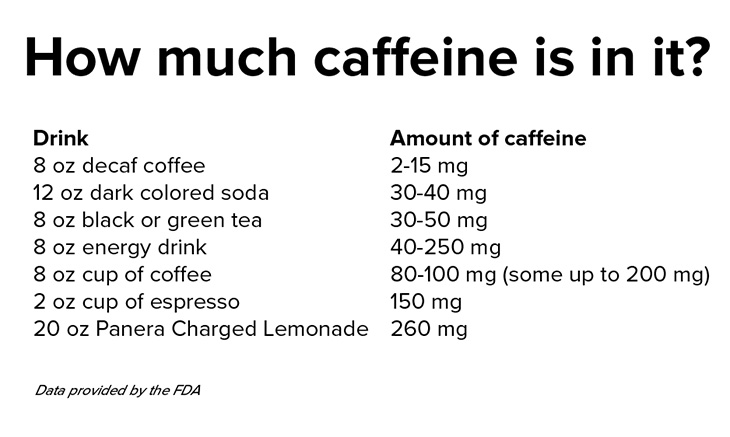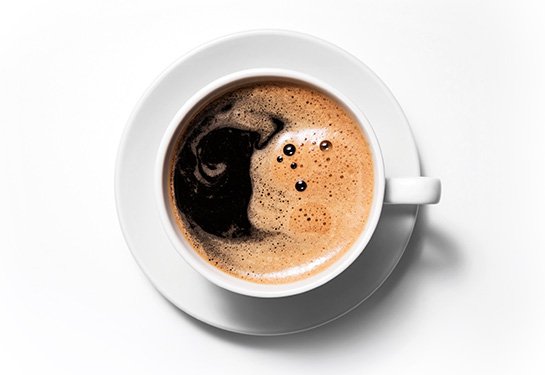Two high-profile lawsuits have been filed alleging that the restaurant chain’s caffeinated lemonade contributed to the deaths of two people with heart disease.
In the wrongful death lawsuit, both men ingested Panera Bread’s Charged Lemonade, but were unaware of the amount of caffeine in the drink because it was not advertised as an energy drink known for its high levels of caffeine. He claims that there was not.
To better understand the effects of caffeine on the heart, cardiology expert Jeffrey Southard, associate clinical professor of interventional cardiology and cardiology dietitian at UC Davis Health, Margaret Junker answered questions about caffeine intake and cardiovascular health.
What happens to your heart when you consume caffeine?
Caffeine increases the release of norepinephrine and adrenaline, which can increase heart rate and blood pressure in some people. For most people, this is well tolerated, but for some it can cause palpitations and extra heart beats.
Caffeine may be associated with atrial fibrillation in susceptible people, and continuous or large amounts of caffeine can increase heart rate. Some studies suggest that drinking coffee reduces the risk of atrial fibrillation over time.
Is it safe for people with heart disease to consume caffeine?
Most people with heart disease can safely consume small amounts of caffeine, such as one cup of coffee, per day.
People with atrial fibrillation or a tendency to have a fast heart rate may experience an increase in heart rate when taken. Additionally, people who are prone to chest pain due to clogged coronary arteries may experience chest pain when the heart has to work harder and its heart rate increases (similar to when running on a treadmill).
Many people, especially those who regularly drink caffeinated beverages, do not experience an increase in heart rate when they consume caffeine. For them, there are no inherent medical risks to consuming caffeine.
However, people with severe heart rhythm disorders should avoid caffeine as it can worsen symptoms.
How much caffeine is too much?
It depends on the person. The Food and Drug Administration (FDA) indicates that a healthy adult can drink 4 to 5 cups of coffee without any harm. Pregnant and breastfeeding women should limit intake to two to three cups a day, and the American Academy of Pediatrics cautions children and adolescents to avoid caffeine.
As with most foods and beverages, recommendations should be individualized based on overall health, chronic conditions, and medications.
Is it possible to consume too much caffeine?
Overdosing on caffeine is rare. Typically, doses above 1 gram may make you feel anxious or nervous. Some people experience insomnia, digestive problems, and fatigue.
Most people who consume too much caffeine are taking tablets or powders that contain much higher concentrations of caffeine. A lethal dose is usually more than 10 grams. Symptoms begin with nausea and vomiting, high blood pressure, and rapid heart rate. If taken in large quantities in tablet or powder form, emergency treatment may be required to prevent fatal consequences.

What foods and drinks contain caffeine?
In addition to coffee, there are many foods and drinks that you would be surprised to know contain caffeine. Some of them are:
- Chocolate and chocolate-containing foods (e.g. chocolate pudding and brownies)
- There are many coffee-flavored foods such as mocha ice cream.
- Dark colored sodas and light colored sodas such as Mountain Dew
- Various energy drinks such as Rockstar, Monster, Prime, Gatorade Fast Twitch, etc.
- energy bar
- Dietary supplements sold for energy and/or weight loss purposes
- Decaffeinated coffee (contains a small amount of caffeine)
- Most packaged foods that have the words “energy” or “charged” on them
Do you have any tips for reducing your caffeine intake?
People looking to kick or reduce their caffeine habit should start gradually. For example, he drinks one less can of soda each day or drinks coffee in a smaller cup.
Another option is to choose green tea over other caffeinated beverages. This is because green tea has low caffeine content and many health benefits.
If you still find yourself reaching for coffee or energy drinks to get through the day, evaluate your daily stressors and schedule. What you really need may not be more caffeine, but a lifestyle improvement. We recommend drinking plenty of water, getting at least 150 minutes of physical activity a week, and practicing meditation and positive self-talk.


